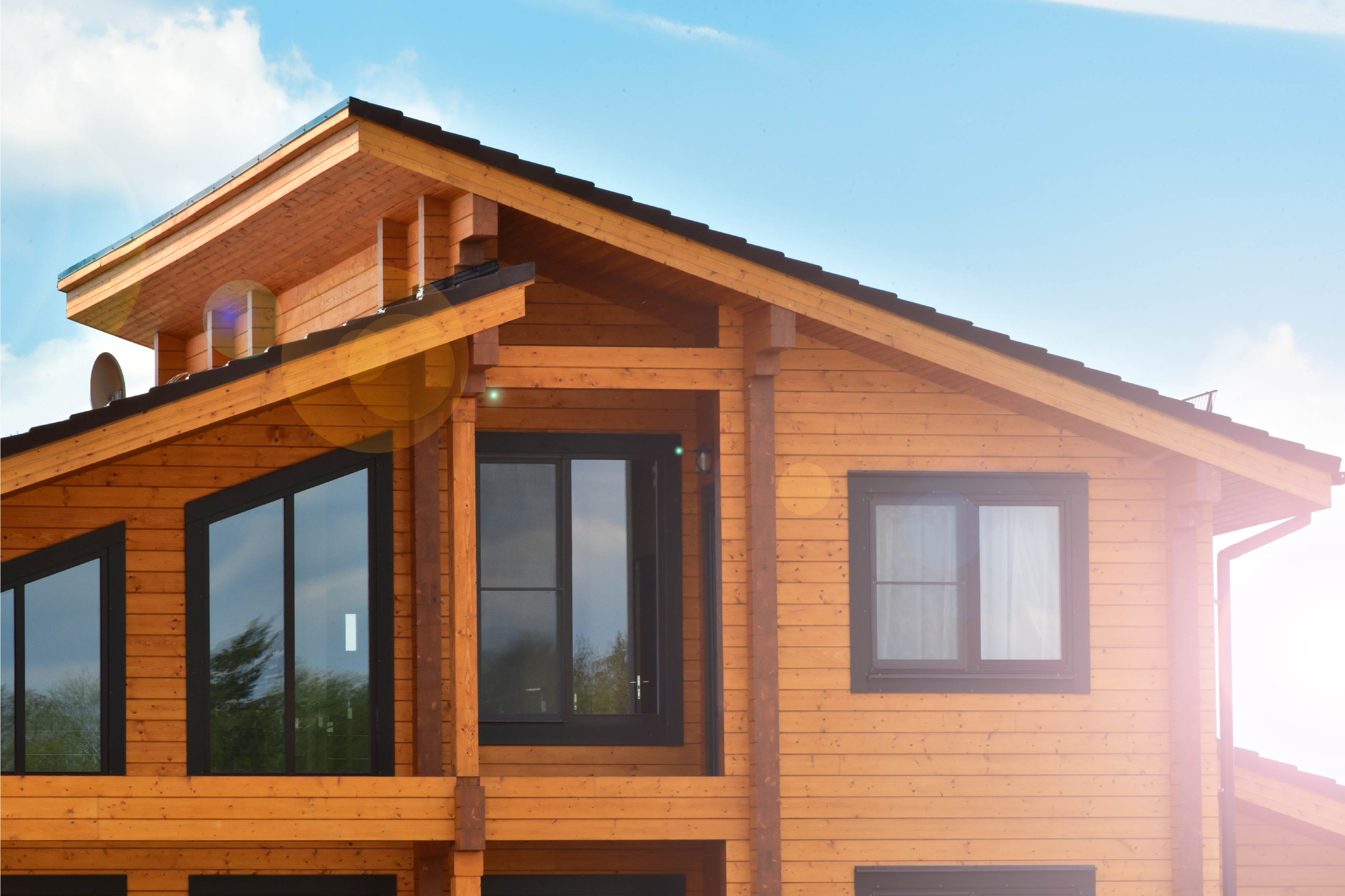Wood vs. Brick Homes: What You Need to Know
One of the most common questions asked by potential homebuyers is: "Should I buy a brick home or a wood home?" It's a good question, but it doesn’t have a clear-cut answer. With the help of some expert opinions, let’s take a look at the pros and cons of each to give you a better idea of which option is best for you.
Buying or Building a Wood Home

The Pros
Many people aren't too keen on the idea of owning a wood home. However, there are some scenarios when buying a wood home is a better option than buying a brick home.
While wood is more affordable than brick, according to a 2017 study conducted by RSMeans and the Brick Industry Association, the national average total construction cost of a clay brick-sided home is only two percent more than wood and fiber cement. So it’s cheaper, but not by much.
In terms of the installation process, wood is less time-consuming than brick. The first requires a carpenter, while the latter requires a trained and practiced brick mason.
“It is fair to say that the labor time and cost for installation is greater for brick than wood siding if both are performed correctly by skilled trades,” said Ron Humes, vice president of operations for Post Modern Marketing in Lexington, Kentucky. He also adds that the time it takes to install either can vary widely due to the type of materials used, the skill level of the workers, and even the weather.
As a lightweight and flexible material, wood is better in earthquake prone areas. The reason for this is because the force of an earthquake is proportional to a structure’s mass, the high strength-to-weight ratio of wood allows the material to survive seismic activity much better than brick.
Wood also gets points for aesthetic flexibility. Wood can be painted, waxed, varnished, cut, glued, and nailed to form versatile architectural designs. When it comes to style, wood is easier to work with and allows for much more creativity.
The Cons
While a wood home is a more versatile and less expensive option than a brick home, there are still some major disadvantages that cause many homebuyers to opt for brick and the additional costs involved.
Recently, supply scarcity and trade tariffs have raised the cost of wood siding products, making it difficult to locate certain materials.
“In my case, it became impossible to find replacement cedar siding for my home at the traditional lumber supply companies, so I found it necessary to purchase from specialty stores at higher costs and only shorter board lengths were available to make necessary repairs,” says Humes.
Also, wood has many enemies: termites, carpenter ants, carpenter bees, and woodpeckers, to name few. Wood homes must be continually monitored for damage and rot, and regular maintenance—such as periodic scraping and painting—is a must. Because of this, wood will generally need to be repaired and/or replaced more often.
Now, let’s talk about wood’s archenemy: water. Wood is prone to water damage, which increases the chances of mold growth. In bad weather, wood expands and contracts and can warp or possibly bend. Unless you live in an earthquake prone or high humidity area, nothing holds up better to the weather and general wear and tear than brick.
Buying or Building a Brick Home

The Pros
Many people prefer brick and therefore will buy a brick home solely based on that reason alone. However, there are plenty of other great reasons for buying or building a brick home.
According to the Brick Industry Association in Reston, Virgina, a brick exterior adds six percent to the resale value of a home. Brick homes tend to sell a bit quicker and at higher prices because brick requires minimal maintenance and ages much better than wood. Brick slowly wears away, whereas wood gets damaged to the point where it can only be removed and replaced.
On the subject of maintenance, Humes says:
“Brick is mostly impervious to those elements that plague wood exteriors. Insects do not eat brick, and brick does not rot. Brick is not impervious to water, but if the brick is installed properly it can get wet and dry without damage. Over long periods of time, brick can erode like stone from high winds, ice fractures, and through the process of expansion and contraction, however, that is a very lengthy process.”
Brick is also easier to keep clean than wood, and the real selling point—brick is fireproof.
The Cons
The cons of buying or building a brick home are few. However, there are some issues that come along with choosing a brick home.
Brick can be more expensive than wood, if you use high-quality bricks. However, if you don't spend the extra money on good brick, it will just cost you more money down the line. Cheap brick is porous, which will result in mold growth, moisture, and, ultimately, cracks.
Anne Fairfax, an American architect based in New York and a founding director of Fairfax & Sammons, describes her experience with problematic brickwork:
“A brick house can be less maintenance than wood as it does not need to be painted. As an architect, however, I've sometimes encountered brick houses I've been tasked with renovating, which were made with unattractive, inexpensive brick. In that case I've specified a whitewash which is then hosed down, exposing the brick in places. This gives the facade a warm authentic look, without having to clad or replace the facade materials.”
Also, while climbing ivy may look impressive on the side of a brick home, the vegetation can damage brick by widening existing cracks or destroying weakened mortar. But wood doesn’t stand much of a chance against ivy either as the plant can easily work its way between boards and harbor wood-damaging insects.
In addition to this, Humes brings to light another important factor to consider when deciding between brick or wood: neighborhood restrictions.
“In many neighborhoods across the United States, there are restrictive covenants that will dictate the type and even percentage of materials that must be used on the exterior of the home to “fit in” with the theme of the neighborhood, such as “brick to grade” or a minimum number of sides to be brick veneer.”
The Bottom Line
When deciding on which type of home is best for your particular situation, there are a few guidelines to follow. The most important information you need to gather to make your final determination is as follows: the quality of the construction, the amount of upkeep and maintenance, and the overall costs of each. Once you have this information, you'll be able to make a decision based on your priorities and financial situation.

